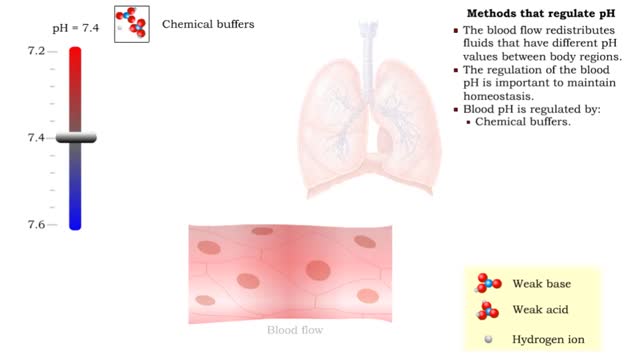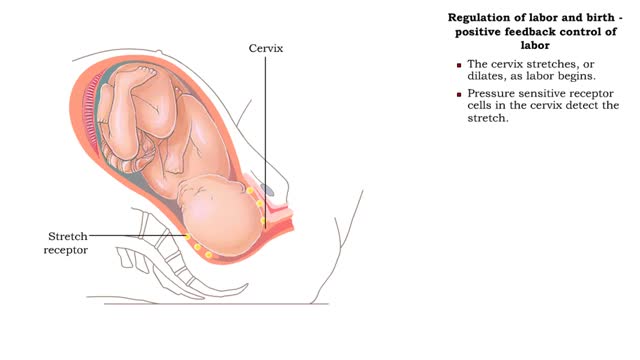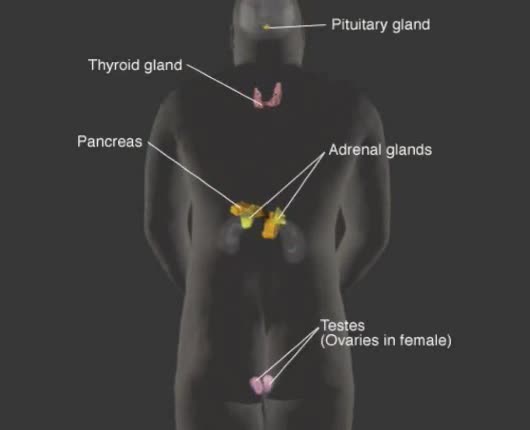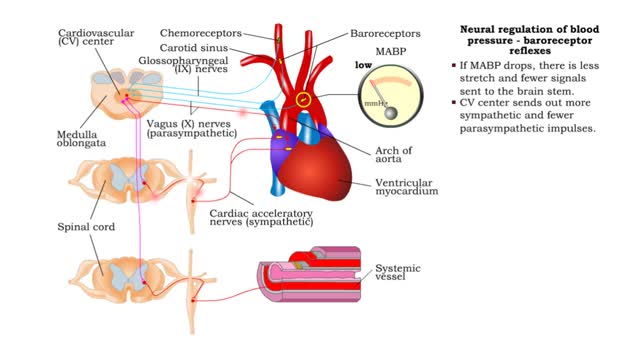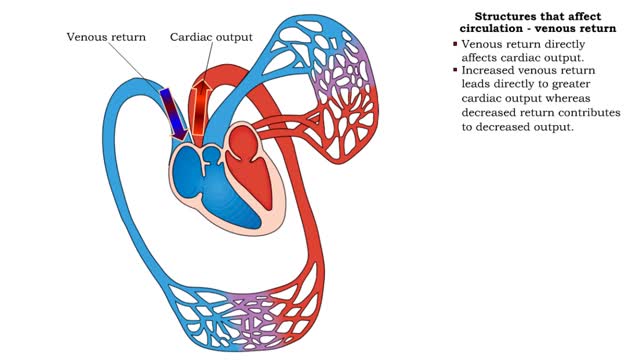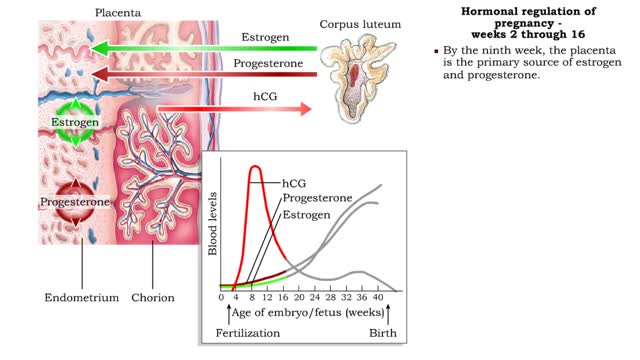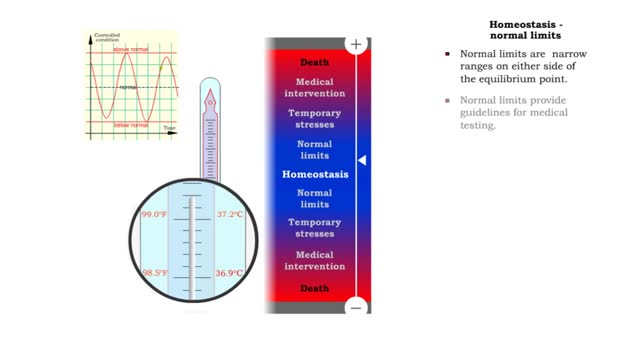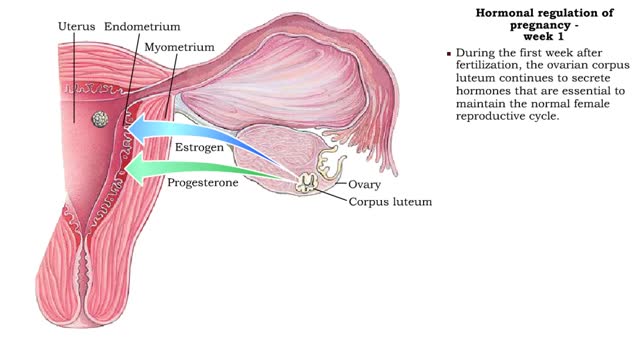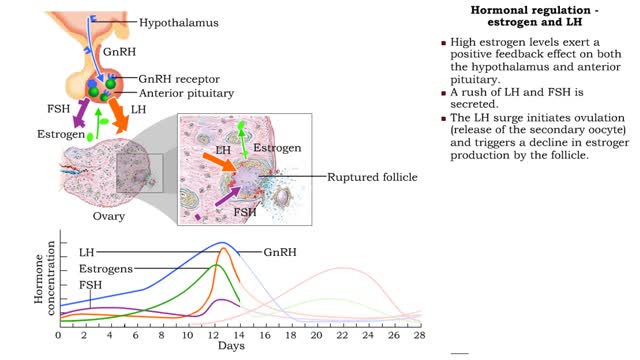Search Results
Results for: 'Regulation of GFR'
By: HWC, Views: 11724
• The blood flow redistributes fluids that have different pH values between body regions. • The regulation of the blood pH is important to maintain homeostasis. • Blood pH is regulated by: • Chemical buffers. • The respiratory system. • The urinary system. • All thes...
Labor and Childbirth - The Three Stages of Labor: Dilation, Expulsion & Placental مراحل الولادة
By: HWC, Views: 12038
Regulation of labor and birth - effects of estrogen and oxytocin on onset of labor • Just prior to birth, high placental corticotropin-releasing hormone levels stimulate the production of more estrogen. • High estrogen levels overcome the inhibitory effects of progesterone on uterine sm...
By: Administrator, Views: 1694
Vital function of endocrine system: Production and regulation of chemical substances called hormones. Hormones Chemical transmitters released in small amounts and transported via bloodstream to a target organ or other cells. Transfer information and instructions from one set of cells to anot...
Neural regulation of blood pressure - baroreceptor and chemoreceptor reflexes
By: HWC, Views: 11996
• The nervous system regulates blood pressure with two reflex arcs: baroreceptor and chemoreceptor. ■ Baroreceptors (pressure) and chemoreceptors (chemical) are located in the carotid sinus and aortic arch. • Carotid sinus reflex helps maintain normal blood pressure in brain. • Ba...
Structures that affect circulation - venous return
By: HWC, Views: 11500
• Venous return directly affects cardiac output. • Increased venous return leads directly to greater cardiac output whereas decreased return contributes to decreased output. • Venous return depends on: • Blood volume regulation by the kidneys. • Venous tone. • Skeletal muscl...
Hormonal regulation of pregnancy - weeks 2 through 38
By: HWC, Views: 12071
Weeks 2 through 16 • During the first few months of pregnancy, estrogen and progesterone are secreted primarily by the corpus luteum. • These hormones act to maintain nutritional support for the embryo and fetus. • hCG production increases, peaking at 8 weeks. • hCG triggers the c...
Homeostasis (range of body conditions, normal limits, mild stresses & severe stresses)
By: HWC, Views: 11417
Homeostasis: • Provides relative stability of the internal environment. • Results from constant adjustments. • Regulated by regulatory processes. • Requires system interplay. • Normal limits. • Temporary stresses. • Disruptions requiring medical intervention. • D...
Hormonal regulation of pregnancy - week 1
By: HWC, Views: 11963
• During pregnancy, hormones play a significant role in triggering changes in the mother and fetus. • Ormones : • Maintain the lining of the uterus and prevent menstruation. Prepare the mammary glands for lactation. • Increase flexibility of the pubic symphysis. • Affect the mot...
Phases of the Female Reproductive Cycle - Hormonal regulation
By: HWC, Views: 12044
FSH, LH and estrogen • FSH travels through the bloodstream from the anterior pituitary to the ovaries. • FSH promotes follicular growth. Increased follicular growth promotes estrogen production. • Small increases in blood estrogen levels inhibit the release of FSH and LH into the bl...
Advertisement



